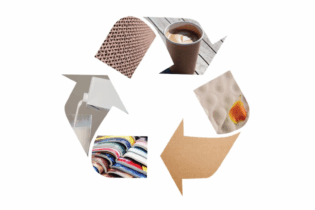Looking back at waste management over the last 25 years, there have been many changes South Africa has experienced. Many things have changed for the good but unfortunately despite these positive changes, there some aspects that never change and, in some cases, actually get worse.
A service delivery issue We have lived through some interesting changing times- and although we are still going through changing times, some things never change. We are still facing some basic challenges in terms of waste management service delivery today. Today we have much improved and very good legislation with respect to both the environment and waste management. However, we appear to have gone backwards in terms of service delivery. We still have problems with the fundamental aspects of waste management, namely: collection and disposal. Collection at municipal level and in particular in informal and rural areas, still leaves much to be desired and huge backlogs are evident in many of our towns. One of the fundamental building blocks in any waste management system is the provision of adequate disposal facilities which are properly designed, constructed and operated to minimize the impact on the environment. Sadly to say, these are also a major challenge today as there is ample evidence of non-existent or very poorly run disposal facilities which can only be described as dumps. So what is the reason for this?
• Lack of qualified and experienced staff to fulfill the various roles in waste management
• Lack of adequate finance or budget to carry out these services In consultation with various municipalities, these issues generally come to the fore. In many cases although staff engaged in waste management, are enthusiastic and endeavour to improve their skills in Waste Management, and try to provide the required services to their communities, they end up being frustrated due to the lack of support from their senior officials and councils, and more importantly, the lack of funds or budget.
Then we have the interesting situation that in looking at solutions to these challenges, we tend to look at high tech solutions imported from elsewhere – sometimes overlooking the high costs of these solutions and the sustainability thereof. Unfortunately, in some cases politicians appeared to get involved and judging by the reported cases of failure of some of these initiatives, it would appear that their involvement was self serving.
The new Waste Act and National Waste Management Strategy have as their main objectives, waste prevention, minimization, recycling, energy recovery and finally, disposal. So considering the challenges we face, the question is, how are we going to implement this? It is becoming increasingly evident that the only way this situation can be resolved is for municipalities to investigate alternative means of service delivery including privatisation. These would include:• Contracting out the various services directly to private contractors, over three or five year contract periods,
• A public-private-partnership (PPP) wherein the municipality partners with the private sector which provides the financing and operational services, or
• A concession wherein a private sector company is granted a long term concession to implement operate a waste management system. In order for a municipality to consider one of these options they would however have to carry out an investigation in terms of Section 78 of the Local Government, Municipal Systems Act (Act No.32 of 2000). Important considerations in this process would be the issue of labour which is employed by the municipality and the cost of the service to be provided. Existing labour needs to be accommodated within the municipal structures or by the private company that is being engaged to carry out the service. The cost of the service also needs to be realistic and sustainable. In conclusion, it would appear that for the majority of municipalities except for a few metros, privatisation may be the way to go if we are to provide a significant improvement in waste management services and comply with the objectives of the Waste Act and NWMS. by Stan Jewaskiewitz






